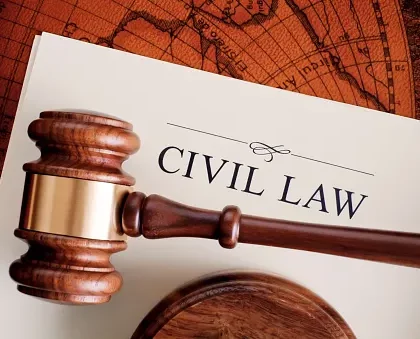Indiana divorce law encompasses a set of regulations and guidelines that govern the process of dissolving a marriage within the state. Familiarizing yourself with these laws is essential to navigate through a divorce successfully. Let’s delve into some common Indiana divorce law questions and provide you with insightful answers.
Table of Contents
- Residency Requirements for Divorce in Indiana
- Grounds for Divorce in Indiana
- Division of Marital Property in Indiana
- Child Custody and Support in Indiana Divorce Cases
- Alimony or Spousal Maintenance in Indiana
- Legal Representation in Indiana Divorce Cases
- Mediation and Alternative Dispute Resolution in Indiana
- Modification of Divorce Decrees in Indiana
- Finalizing the Divorce Process in Indiana
- Child Visitation Rights in Indiana Divorce Cases
- Seeking Legal Advice for Indiana Divorce Law Questions
- conclusion
Residency Requirements for Divorce in Indiana
To file for divorce in Indiana, you must meet the residency requirements. At least one spouse must have been a resident of Indiana for a minimum of six months before filing the divorce petition. This ensures that the state has jurisdiction over the case. It is vital to satisfy this requirement before initiating divorce proceedings in Indiana.Indiana divorce law questions? Smart pens can’t provide residency requirements, but legal professionals can guide you through the process accurately.
Grounds for Divorce in Indiana
Indiana is a “no-fault” divorce state, which means you don’t need to prove wrongdoing to seek a divorce. The most common grounds for divorce in Indiana are irretrievable breakdown of the marriage and the parties’ irreconcilable differences. It’s important to note that fault-based grounds, such as adultery or felony conviction, can still be cited if relevant to the case. Understanding the intricacies of Indiana divorce law can help address your indiana divorce law questions, ensuring grounds for a smooth dissolution.
Division of Marital Property in Indiana
Indiana follows the principle of “equitable distribution” when it comes to dividing marital property. This means that the court strives to divide assets and debts fairly, though not necessarily equally, between the spouses. Factors such as the length of the marriage, each spouse’s contributions, and their earning capacities are considered when determining the division of property. Understanding the Indiana divorce law questions can help ensure a fair division of marital property.
Child Custody and Support in Indiana Divorce Cases
Child custody and support are significant aspects of any divorce involving children. Indiana prioritizes the best interests of the child when making custody decisions. The court may grant either joint custody or sole custody, depending on what is deemed most beneficial for the child. Child support is determined based on the state’s guidelines, taking into account each parent’s income and the child’s needs. Navigating the complexities of Indiana divorce law questions, ensuring fair child custody and support arrangements for families in transition.
Alimony or Spousal Maintenance in Indiana
Spousal maintenance, commonly known as alimony, may be awarded in Indiana divorces. The court considers factors such as the duration of the marriage, the financial resources of each spouse, their earning capacity, and their contributions to the marriage when deciding whether to award alimony and the amount. The purpose of alimony is to provide financial support to the spouse who may be at a disadvantage after the divorce. Understanding the intricacies of alimony or spousal maintenance in Indiana requires seeking expert advice on Indiana divorce law questions.
Legal Representation in Indiana Divorce Cases
Having legal representation is crucial when going through a divorce in Indiana. An experienced divorce attorney can guide you through the complex legal process, protect your rights, and advocate for your best interests. They can help you understand the specific Indiana divorce laws and navigate any challenges that may arise during the proceedings. Consulting a knowledgeable attorney is essential for navigating Indiana divorce law questions and ensuring effective legal representation.
Mediation and Alternative Dispute Resolution in Indiana
Mediation and alternative dispute resolution methods are encouraged in Indiana divorce cases. These processes offer an opportunity for the parties to negotiate and reach mutually acceptable agreements outside of court. Mediation can help reduce conflict, save time, and minimize costs associated with divorce. However, if mediation fails, the court will step in to resolve outstanding issues. In Indiana, mediation and alternative dispute resolution offer efficient and collaborative solutions Indiana divorce law questions
Modification of Divorce Decrees in Indiana
Modifying divorce decrees in Indiana is possible when there is a substantial change in circumstances that warrants a modification. For example, if there are changes in income, child custody arrangements, or a need to adjust child support or alimony payments, the court can review and modify the original divorce decree accordingly. Seeking legal advice is advisable when considering a modification. Understanding indiana divorce law questions the modification process for divorce decrees with confidence and clarity.
Finalizing the Divorce Process in Indiana
The final step in the Indiana divorce process is the entry of the final divorce decree. This decree legally terminates the marriage, addresses all relevant issues such as property division, child custody, and support, and outlines the rights and responsibilities of each party. Once the divorce is finalized, both parties can move forward and begin their new lives separately. Navigating the intricacies of Indiana divorce law questions requires expert guidance to ensure a smooth finalization of the divorce process.
Child Visitation Rights in Indiana Divorce Cases
When it comes to child custody arrangements in Indiana divorces, visitation rights play a significant role. Indiana law recognizes the importance of maintaining meaningful relationships between children and noncustodial parents. Visitation schedules are typically established to ensure regular and consistent contact between the child and the noncustodial parent. Understanding the factors considered by the court when determining visitation rights can help parents navigate this aspect of their divorce proceedings. Intricacies of Indiana divorce law questions can help ensure fair child visitation rights are upheld for all parties involved.
Seeking Legal Advice for Indiana Divorce Law Questions
Navigating the complexities of Indiana divorce law can be overwhelming, which is why seeking legal advice is highly recommended. An experienced divorce attorney can provide valuable insights and answers to your specific questions related to Indiana divorce law. They can guide you through the entire process, help you understand your rights and obligations, and work towards achieving the best possible outcome in your divorce case. Consulting with a knowledgeable attorney ensures that you are well informed and properly represented throughout the divorce process. For comprehensive guidance on your Indiana divorce law questions, consult with a trusted attorney who specializes in family law.
conclusion
understanding Indiana divorce law is crucial when navigating the divorce process in the state. By being familiar with the residency requirements, grounds for divorce, property division, child custody and support, alimony, and the importance of legal representation, you can ensure a smoother and more successful divorce experience. Remember to consult with a qualified divorce attorney to address your specific concerns and questions regarding Indiana divorce law. understanding Indiana divorce law questions is crucial to navigating the complexities of marital dissolution with confidence and clarity.
Learn about: Secure your financial future. Discover the intricacies of Colorado divorce law alimony to navigate your divorce with confidence.




